How is Green Waste Processing Beneficial to the Environment?
In today's world, where environmental concerns are at the forefront of public consciousness, understanding how green waste processing benefits the environment is crucial. This practice not only helps in managing waste more effectively but also plays a significant role in promoting sustainability. By processing organic waste, we can reduce the burden on landfills, enhance soil health, and contribute to a healthier ecosystem. Let's dive into the myriad benefits that green waste processing offers and see how it can transform our approach to waste management.
One of the most significant advantages of green waste processing is its ability to reduce landfill waste. When organic materials like food scraps, yard clippings, and other biodegradable items are sent to landfills, they decompose anaerobically, producing methane—a potent greenhouse gas. By diverting these materials from landfills through processing methods such as composting and mulching, we can significantly minimize methane emissions. This not only helps in prolonging the lifespan of existing landfills but also promotes a more sustainable waste management system, reducing the overall environmental impact.
Processed green waste, particularly in the form of compost, is a game-changer for soil health. When we add compost to our gardens or agricultural fields, we're not just throwing in some dirt; we're enriching the soil with essential nutrients that plants crave. This organic matter improves soil structure, enhances microbial activity, and boosts water retention capabilities. Imagine your garden thriving with vibrant plants, all thanks to the nutrient-rich compost derived from what would have otherwise been waste!
Composting is an incredible way to transform green waste into a valuable resource. By breaking down organic materials, we create nutrient-rich soil amendments that can be used in gardens and farms alike. This process not only diverts waste from landfills but also fosters sustainable agriculture. Think of compost as nature’s own fertilizer—it's packed with nutrients that help plants grow strong and healthy.
The composting process stimulates microbial activity, which is essential for nutrient cycling in the soil. These tiny organisms break down organic matter, releasing nutrients that are vital for plant growth. Without these microorganisms, our soils would be barren and lifeless. So, every time you use compost, you're not just helping your plants; you're also supporting a thriving ecosystem beneath the surface.
Another fantastic benefit of compost is its ability to improve soil's water retention capacity. This means that composted soil can hold onto moisture much better than regular soil, reducing the need for frequent irrigation. In drought-prone areas, this feature is particularly beneficial, contributing to water conservation efforts. Imagine being able to maintain a lush garden even during dry spells—compost makes that possible!
Using green waste as mulch is another effective method to enhance plant health. Mulching with processed green waste helps to suppress weeds, retain moisture, and regulate soil temperature. This not only benefits the plants but also reduces the need for chemical herbicides, making it an eco-friendly choice. Think of mulch as a protective blanket for your garden, keeping it cozy and thriving!
Processing green waste is a crucial step in lowering our overall carbon emissions. By diverting organic waste from landfills and utilizing it in beneficial ways, we can significantly reduce our carbon footprint. This not only helps combat climate change but also promotes a healthier planet for future generations. It’s a win-win situation where we can turn waste into a resource while caring for our environment.
Did you know that green waste can also be processed to generate renewable energy? Through a method called anaerobic digestion, organic waste is broken down to capture methane gas, which can then be used to produce electricity. This innovative approach not only reduces reliance on fossil fuels but also contributes to a more sustainable energy future. It’s like finding a goldmine in our trash!
Promoting green waste processing encourages community involvement in sustainable practices. Educational programs and local initiatives can foster a culture of environmental responsibility and awareness among residents. When communities come together to manage green waste, they not only improve their local environment but also strengthen community bonds. It’s all about working together for a common goal!
- What is green waste? Green waste refers to organic materials such as grass clippings, leaves, and food scraps that can be composted or processed.
- How does composting help the environment? Composting reduces landfill waste, lowers greenhouse gas emissions, and enriches soil health.
- Can I compost everything? No, not all organic materials can be composted. Avoid composting meat, dairy, and oily foods.
- How can I get involved in green waste processing? You can start by composting at home or participating in local community composting programs.

Reduction of Landfill Waste
This article explores the various environmental benefits of green waste processing, including its impact on reducing landfill waste, enhancing soil health, and contributing to sustainable practices.
Green waste processing is a game changer when it comes to managing our organic waste. By effectively diverting organic materials—like yard clippings, food scraps, and other biodegradable items—from landfills, we can significantly reduce the volume of waste that ends up in these sites. Did you know that landfills are one of the largest sources of methane emissions? This potent greenhouse gas is released when organic matter decomposes anaerobically, or without oxygen, which is a common occurrence in landfill environments. By processing green waste, we not only minimize these emissions but also help prolong the lifespan of our landfills, allowing them to serve their purpose longer.
Imagine a world where our landfills are less crowded, and the air is cleaner. That's the kind of future we can work towards by adopting green waste processing practices. When organic waste is composted or converted into mulch, it transforms into a valuable resource rather than a burden on the environment. This shift promotes a more sustainable waste management system, encouraging communities to rethink how they handle their organic materials.
To put this into perspective, consider the following statistics:
| Year | Waste Sent to Landfills (in tons) | Green Waste Diverted (in tons) |
|---|---|---|
| 2020 | 292 million | 35 million |
| 2021 | 295 million | 40 million |
| 2022 | 290 million | 45 million |
As you can see, even a small increase in the amount of green waste diverted from landfills can have a significant impact. By implementing green waste processing programs, municipalities can not only reduce landfill waste but also create a more sustainable community.
Furthermore, engaging the community in green waste processing initiatives can amplify these benefits. When residents understand the importance of separating their organic waste and actively participate in these programs, it fosters a culture of sustainability. This collective effort can lead to a noticeable decrease in landfill waste and a greater appreciation for our environment.
In summary, the reduction of landfill waste through green waste processing is not just an environmental necessity; it's a vital step towards a healthier planet. By embracing these practices, we can create a cleaner, greener future for ourselves and generations to come.
Processed green waste, such as compost, enriches soil quality by adding essential nutrients. This organic matter enhances soil structure, promotes beneficial microbial activity, and improves water retention, leading to healthier ecosystems.
Composting green waste transforms organic materials into nutrient-rich soil amendments. This process not only diverts waste from landfills but also produces a valuable resource for gardeners and farmers, fostering sustainable agriculture.
The composting process stimulates microbial activity, which is crucial for nutrient cycling in soil. These microorganisms break down organic matter, promoting soil fertility and plant growth.
Compost improves soil's ability to retain moisture, reducing the need for irrigation. This feature is particularly beneficial in drought-prone areas, contributing to water conservation efforts.
Using green waste as mulch suppresses weeds, retains moisture, and regulates soil temperature. This practice not only benefits plant health but also reduces the need for chemical herbicides.
Processing green waste effectively lowers overall carbon emissions. By diverting organic waste from landfills and utilizing it in beneficial ways, we can significantly reduce our carbon footprint.
Green waste can be processed to generate renewable energy through anaerobic digestion. This method captures methane gas, which can be used to produce electricity, further reducing reliance on fossil fuels.
Promoting green waste processing encourages community involvement in sustainable practices. Educational programs and local initiatives can foster a culture of environmental responsibility and awareness among residents.
Q1: What types of materials can be processed as green waste?
A1: Green waste typically includes yard trimmings, leaves, grass clippings, and food scraps. It's essential to avoid adding non-biodegradable materials.
Q2: How can I start composting at home?
A2: Start by collecting your kitchen scraps and yard waste. Choose a compost bin or pile, mix the materials, and maintain moisture and aeration for optimal decomposition.
Q3: What are the benefits of using compost in my garden?
A3: Compost enriches soil, improves drainage, enhances moisture retention, and provides essential nutrients for plants, leading to healthier gardens.
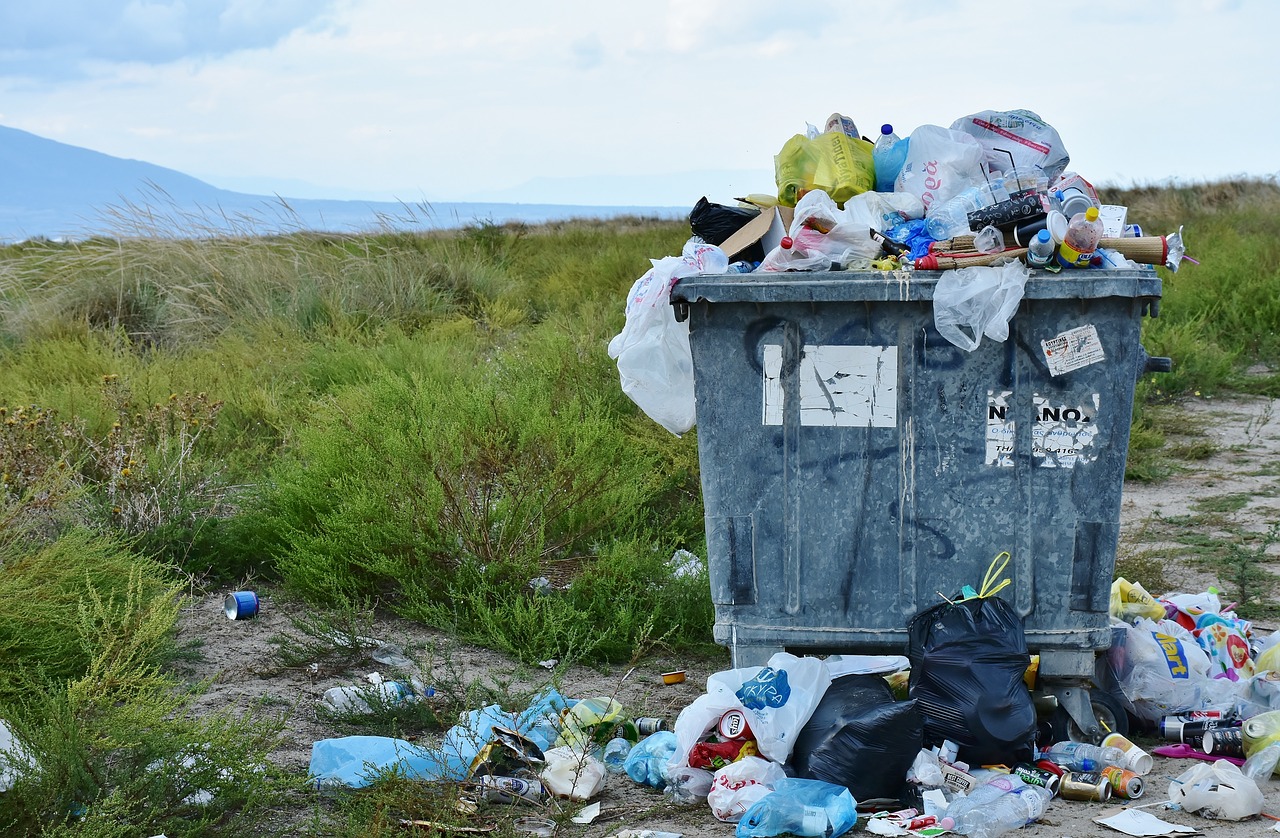
Soil Health Improvement
This article explores the various environmental benefits of green waste processing, including its impact on reducing landfill waste, enhancing soil health, and contributing to sustainable practices.
Green waste processing significantly reduces the volume of organic material sent to landfills, thereby minimizing methane emissions and prolonging landfill lifespan. This practice promotes a more sustainable waste management system.
When we talk about soil health, we're diving deep into the very foundation of our ecosystems. Processed green waste, such as compost, plays a pivotal role in enriching soil quality by adding essential nutrients. Just imagine your garden as a living organism; it needs the right food to thrive. Compost acts like a hearty meal, providing the nutrients that plants crave. This organic matter not only enhances soil structure but also promotes beneficial microbial activity, which is crucial for a thriving ecosystem.
One of the standout benefits of compost is its ability to improve water retention. Think of it this way: when you add compost to your soil, it's like giving it a sponge that soaks up moisture. This is particularly beneficial in drought-prone areas, where every drop counts. By improving the soil's ability to retain water, compost reduces the need for frequent irrigation, making it a fantastic ally in water conservation efforts.
Composting green waste transforms organic materials into nutrient-rich soil amendments. This process not only diverts waste from landfills but also produces a valuable resource for gardeners and farmers, fostering sustainable agriculture. The composting process stimulates microbial activity, which is crucial for nutrient cycling in soil. These microorganisms break down organic matter, promoting soil fertility and plant growth.
Microbial life in the soil is akin to a bustling city. These tiny organisms work tirelessly, breaking down organic matter and making nutrients available for plants. When we add compost to the soil, we are essentially inviting millions of these beneficial microbes to the party. This enhanced microbial activity is vital for maintaining healthy soil, as it ensures that nutrients are cycled efficiently, allowing plants to flourish.
Another significant advantage of compost is its ability to improve the soil's water retention capacity. By incorporating compost into your gardening practices, you are essentially creating a moisture reservoir that can sustain plants during dry spells. This not only benefits your plants but also contributes to overall water conservation efforts, reducing the demand for irrigation.
Using green waste as mulch further enhances soil health. Mulching with compost or shredded green waste suppresses weeds, retains moisture, and regulates soil temperature. This practice not only benefits plant health but also reduces the need for chemical herbicides, making it a win-win for both the environment and your garden.
Processing green waste effectively lowers overall carbon emissions. By diverting organic waste from landfills and utilizing it in beneficial ways, we can significantly reduce our carbon footprint.
Green waste can be processed to generate renewable energy through anaerobic digestion. This method captures methane gas, which can be used to produce electricity, further reducing reliance on fossil fuels.
Promoting green waste processing encourages community involvement in sustainable practices. Educational programs and local initiatives can foster a culture of environmental responsibility and awareness among residents.
- What is green waste? Green waste refers to organic materials that are biodegradable, such as grass clippings, leaves, and food scraps.
- How does composting benefit the environment? Composting reduces landfill waste, decreases methane emissions, and enhances soil health, contributing to a more sustainable ecosystem.
- Can I compost in my backyard? Yes! Backyard composting is a great way to recycle organic waste and create nutrient-rich compost for your garden.
- What are some common uses for compost? Compost can be used as a soil amendment, mulch, or even as a component in potting mixes for plants.

Composting Benefits
Composting is not just a trendy term thrown around by eco-enthusiasts; it's a transformative process that turns your everyday kitchen scraps and yard waste into black gold for your garden. Imagine a world where all those banana peels, coffee grounds, and fallen leaves are not just tossed into the trash, but instead, they are reincarnated as a nutrient-rich soil amendment. This is the magic of composting! Not only does it help in diverting waste from landfills, but it also creates a valuable resource that can enhance the productivity of gardens and farms.
One of the key benefits of composting is its ability to improve soil structure. When you add compost to your soil, you're not just adding organic matter; you're also introducing a diverse array of nutrients that are essential for plant growth. This organic material helps to create a crumbly texture in the soil, which allows for better air circulation and root penetration. As a result, plants can establish themselves more effectively, leading to healthier and more resilient crops.
Moreover, composting promotes a thriving ecosystem in your garden. The process stimulates microbial activity, which is crucial for nutrient cycling. These tiny organisms break down organic matter, making nutrients available to plants in a form they can easily absorb. Without these microorganisms, our soils would be lifeless and barren. Think of them as the unsung heroes working tirelessly beneath the surface, ensuring that your plants get the nourishment they need.
Another significant advantage of compost is its water retention capacity. When compost is mixed into the soil, it acts like a sponge, holding moisture and releasing it slowly to plants. This is particularly beneficial in regions that experience drought, as it reduces the need for frequent irrigation. Imagine being able to water your garden less often while still seeing it thrive—that's the power of compost! Not only does this conserve water, but it also leads to lower water bills and less stress on local water resources.
In addition to these benefits, composting also plays a vital role in promoting biodiversity. By enhancing soil health, compost supports a variety of plant species, which in turn attracts beneficial insects, birds, and other wildlife. This creates a balanced ecosystem where plants and animals coexist harmoniously. When you compost, you're not just improving your garden; you're contributing to a healthier planet.
To sum it all up, the benefits of composting are manifold, including:
- Reduction of landfill waste: Diverts organic materials from landfills, reducing methane emissions.
- Enhanced soil quality: Adds essential nutrients and improves soil structure.
- Increased microbial activity: Supports nutrient cycling and enhances soil fertility.
- Improved water retention: Helps soil retain moisture, reducing the need for irrigation.
- Promotion of biodiversity: Creates a healthy ecosystem that supports various plant and animal life.
In conclusion, composting is a simple yet powerful practice that offers numerous benefits for both your garden and the environment. By embracing composting, you're not just making a choice for your plants; you're making a choice for a sustainable future. So, the next time you consider tossing out your green waste, think again! You have the power to turn that waste into a resource that can nourish the earth.
Q: What can I compost?
A: You can compost a variety of organic materials, including fruit and vegetable scraps, coffee grounds, eggshells, grass clippings, leaves, and small branches. Just avoid meat, dairy, and oily foods as they can attract pests.
Q: How long does it take to make compost?
A: Composting can take anywhere from a few weeks to several months, depending on the materials used and the composting method. Hot composting can speed up the process significantly.
Q: Can I compost in an apartment?
A: Absolutely! Many urban dwellers successfully compost using indoor compost bins or worm composting (vermicomposting) systems, which are compact and odor-free.
Q: Is composting difficult?
A: Not at all! Composting is straightforward. Just collect your organic waste, balance your greens (nitrogen-rich materials) and browns (carbon-rich materials), and maintain moisture. With a little patience, you'll have compost in no time!
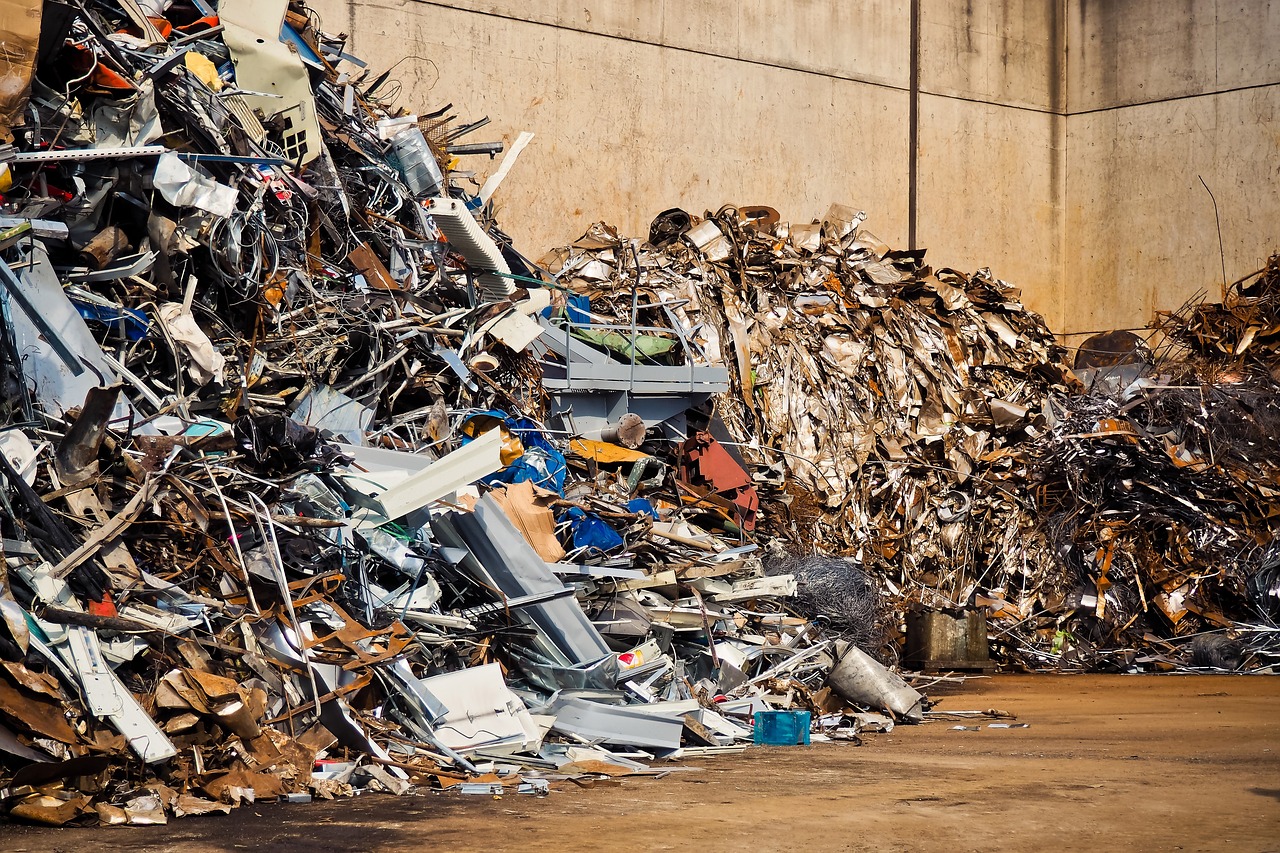
Microbial Activity Enhancement
When we talk about composting green waste, one of the most exciting benefits is the enhancement of microbial activity in the soil. Think of soil as a bustling city, where countless microorganisms work tirelessly to keep everything in balance. These tiny workers play a crucial role in breaking down organic matter, recycling nutrients, and ultimately supporting plant growth. By composting green waste, we are essentially feeding these microorganisms, allowing them to thrive and multiply.
During the composting process, organic materials such as leaves, grass clippings, and food scraps undergo a transformation. As these materials decompose, they release nutrients that are essential for plant health. This nutrient cycling is vital for maintaining soil fertility, which in turn supports robust plant growth. Without these microorganisms, soil would become lifeless, and plants would struggle to access the nutrients they need to flourish.
Moreover, the diversity of microbial life in compost is staggering. A single teaspoon of healthy compost can contain billions of microorganisms, including bacteria, fungi, and protozoa. Each of these organisms plays a unique role:
- Bacteria: These are the primary decomposers, breaking down organic matter into simpler compounds.
- Fungi: They help in breaking down tough materials like cellulose and lignin, which are found in plant cell walls.
- Protozoa: These organisms feed on bacteria and help release nutrients back into the soil, making them available for plants.
By enhancing microbial activity, composting not only improves soil health but also boosts the resilience of ecosystems. Healthy soils with abundant microbial life can better withstand environmental stressors such as drought or disease. This resilience is crucial, especially as we face the challenges of climate change and the increasing demand for sustainable agricultural practices.
In summary, the enhancement of microbial activity through green waste processing is a game-changer for both soil health and agricultural productivity. By nurturing these microscopic allies, we are investing in a sustainable future for our gardens, farms, and ultimately, our planet.
Q1: What types of green waste can be composted?
A1: You can compost a variety of green waste, including grass clippings, leaves, fruit and vegetable scraps, coffee grounds, and small branches. However, avoid adding meat, dairy, or oily foods to your compost pile as they can attract pests.
Q2: How long does it take for green waste to decompose into compost?
A2: The composting process can take anywhere from a few weeks to several months, depending on factors such as the materials used, moisture levels, and temperature. Turning the compost regularly can speed up the process.
Q3: Can I compost in an apartment?
A3: Yes! There are many options for composting in small spaces, such as vermicomposting (using worms) or using a compost bin designed for indoor use. Just be sure to manage it properly to avoid odors.
Q4: What are the benefits of using compost in my garden?
A4: Compost enriches the soil with nutrients, improves soil structure, enhances water retention, and promotes healthy microbial activity. It can lead to healthier plants and better yields in your garden.
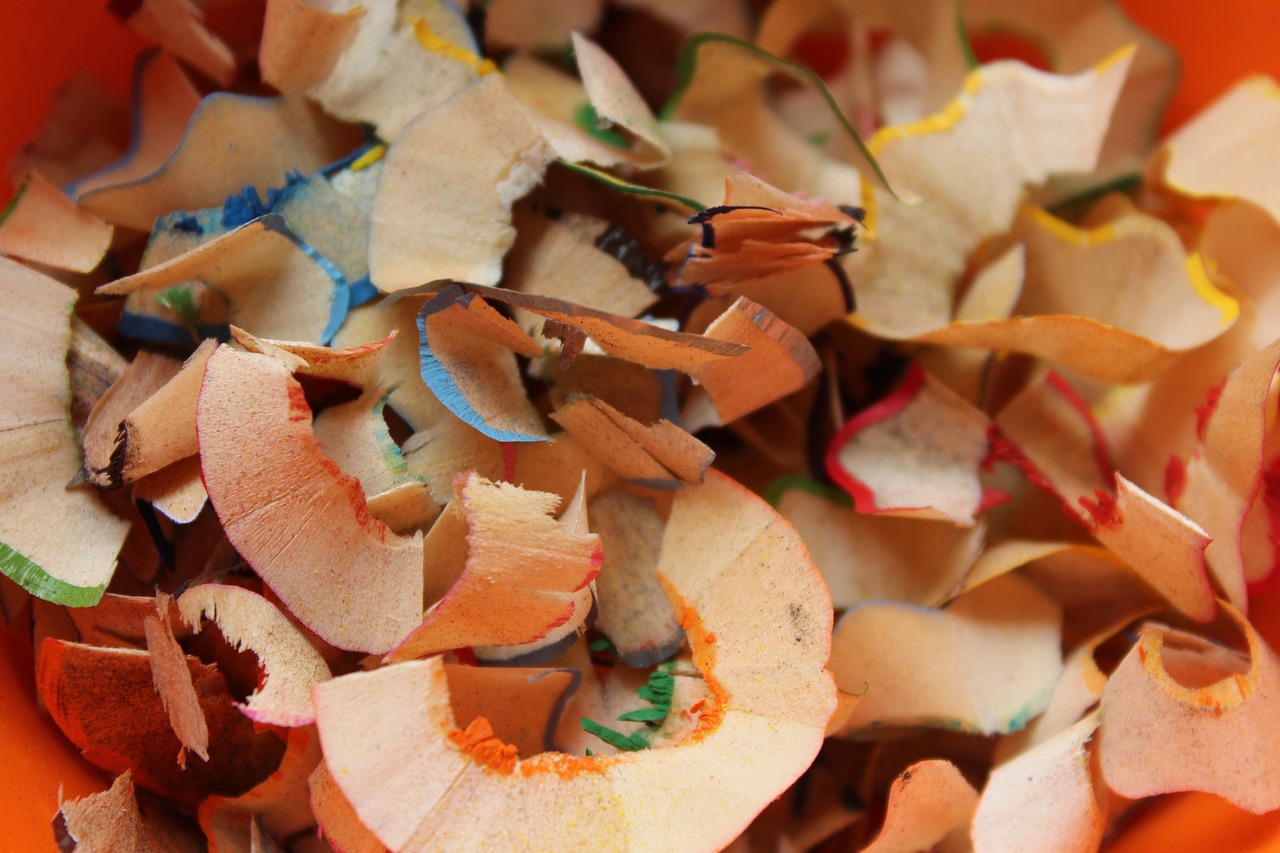
Water Retention Capacity
This article explores the various environmental benefits of green waste processing, including its impact on reducing landfill waste, enhancing soil health, and contributing to sustainable practices.
Green waste processing significantly reduces the volume of organic material sent to landfills, thereby minimizing methane emissions and prolonging landfill lifespan. This practice promotes a more sustainable waste management system.
Processed green waste, such as compost, enriches soil quality by adding essential nutrients. This organic matter enhances soil structure, promotes beneficial microbial activity, and improves water retention, leading to healthier ecosystems.
Composting green waste transforms organic materials into nutrient-rich soil amendments. This process not only diverts waste from landfills but also produces a valuable resource for gardeners and farmers, fostering sustainable agriculture.
The composting process stimulates microbial activity, which is crucial for nutrient cycling in soil. These microorganisms break down organic matter, promoting soil fertility and plant growth.
One of the standout benefits of compost is its remarkable . When green waste is processed into compost, it becomes a sponge for moisture, significantly improving the soil's ability to hold water. This characteristic is particularly vital in areas prone to drought, where every drop of water counts. Imagine your garden as a thirsty plant; compost acts like a refreshing drink, quenching its thirst and allowing it to flourish.
Moreover, the addition of compost to soil can reduce the frequency of irrigation, leading to both water conservation and cost savings for gardeners and farmers alike. This is especially important as we face increasing challenges related to climate change and water scarcity.
To illustrate the impact of compost on water retention, consider the following table:
| Soil Type | Water Retention Without Compost (%) | Water Retention With Compost (%) |
|---|---|---|
| Sandy Soil | 10-15% | 20-30% |
| Clay Soil | 30-40% | 50-60% |
| Loamy Soil | 20-25% | 35-45% |
This table highlights how compost can dramatically enhance the water retention capacity of various soil types. By increasing the moisture content, compost not only supports plant health but also plays a crucial role in maintaining the overall ecosystem. In essence, composting transforms green waste into a resource that nurtures the earth, making it a win-win for both gardeners and the environment.
Using green waste as mulch suppresses weeds, retains moisture, and regulates soil temperature. This practice not only benefits plant health but also reduces the need for chemical herbicides.
Processing green waste effectively lowers overall carbon emissions. By diverting organic waste from landfills and utilizing it in beneficial ways, we can significantly reduce our carbon footprint.
Green waste can be processed to generate renewable energy through anaerobic digestion. This method captures methane gas, which can be used to produce electricity, further reducing reliance on fossil fuels.
Promoting green waste processing encourages community involvement in sustainable practices. Educational programs and local initiatives can foster a culture of environmental responsibility and awareness among residents.
- What is green waste? Green waste refers to organic materials such as grass clippings, leaves, and food scraps that can be composted or processed.
- How does composting help the environment? Composting reduces landfill waste, lowers greenhouse gas emissions, and enriches soil health.
- Can I compost at home? Yes! Composting at home is a simple process that can be done using a compost bin or pile.
- What types of green waste can be composted? Most plant-based materials, including fruit and vegetable scraps, yard waste, and coffee grounds, are suitable for composting.
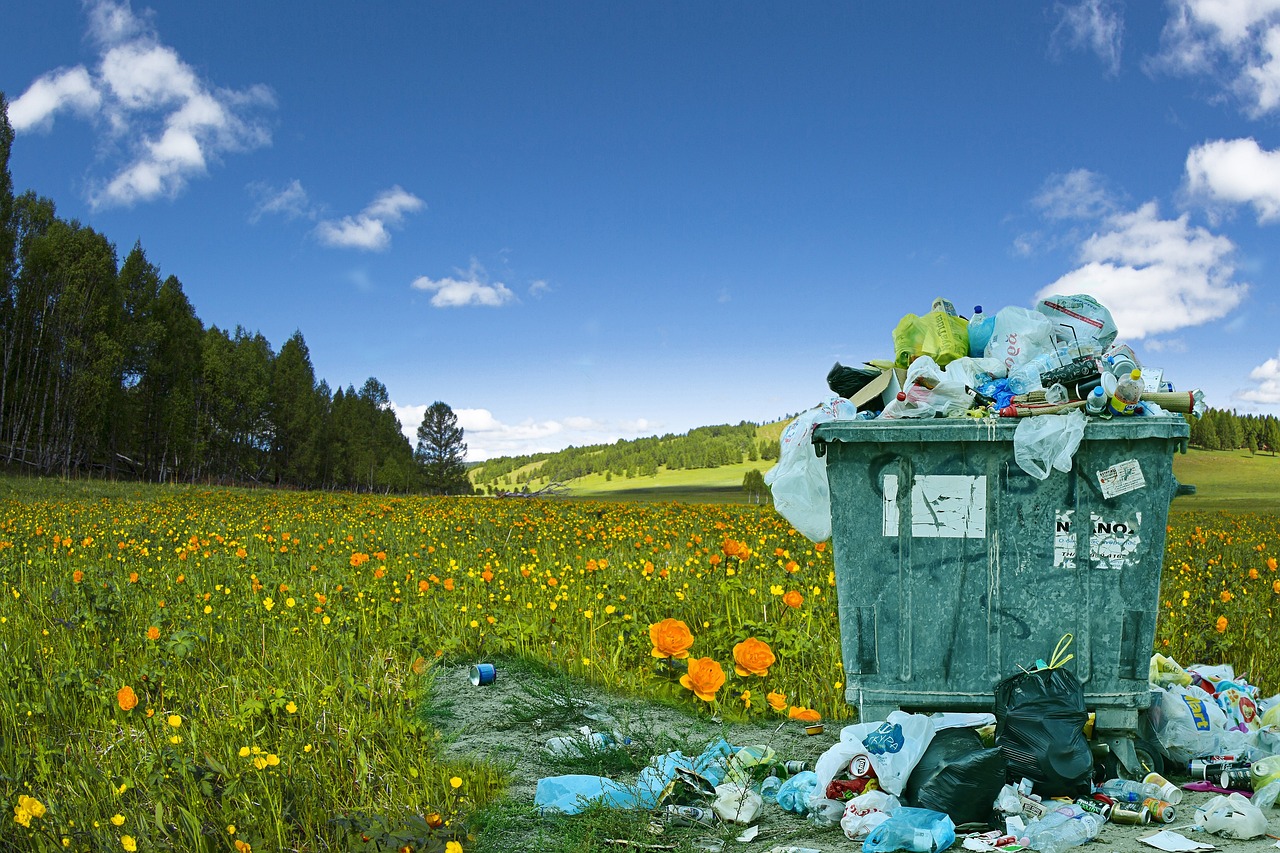
Mulching Practices
Mulching is one of those gardening techniques that sounds simple but can have an enormous impact on your plants and the environment. When you use green waste as mulch, you’re not just covering the soil; you’re creating a protective barrier that offers a plethora of benefits. Imagine your garden as a cozy blanket on a cold night—mulch serves a similar purpose by keeping the soil warm and moist while protecting it from harsh weather conditions.
One of the most significant advantages of using green waste as mulch is its ability to suppress weeds. Weeds are like those uninvited guests at a party; they can quickly take over and ruin the fun. By laying down a thick layer of organic mulch, you can effectively block sunlight from reaching weed seeds, preventing them from germinating. This not only saves you time and effort in weeding but also reduces the need for chemical herbicides, aligning with sustainable gardening practices.
Moreover, mulching helps retain moisture in the soil. Have you ever noticed how a sponge holds water? Well, mulch acts in a similar way. It absorbs rainwater and reduces evaporation, keeping your plants hydrated for longer periods. This is particularly beneficial during dry spells or in drought-prone regions, where every drop of water counts. By minimizing the need for frequent watering, you are not only conserving water but also saving on your utility bills!
In addition to moisture retention, mulch also plays a crucial role in regulating soil temperature. Just like a thermostat in your home, mulch helps maintain a stable temperature in the soil. During hot summer months, it keeps the soil cool, preventing plant stress, while in the winter, it acts as an insulator, protecting the roots from freezing temperatures. This temperature regulation creates an ideal environment for beneficial soil organisms, which are essential for plant health.
Another exciting aspect of using green waste for mulching is its ability to improve soil structure over time. As the organic material breaks down, it enriches the soil with nutrients, enhancing its fertility. This is like giving your plants a nutritious meal that helps them grow stronger and healthier. Additionally, the decomposition process encourages the activity of beneficial microorganisms, which contribute to a vibrant ecosystem in your garden.
In summary, mulching with green waste is not just about aesthetics; it's a multifaceted practice that promotes plant health, conserves water, and supports sustainable gardening. So, the next time you’re considering how to care for your garden, think about the benefits of mulching. You’ll be doing your plants—and the planet—a huge favor!
- What types of green waste can be used for mulching? You can use grass clippings, leaves, shredded branches, and even kitchen scraps like vegetable peels. Just make sure the materials are free from chemicals and diseases.
- How thick should the mulch layer be? A thickness of 2 to 4 inches is generally recommended. This depth is sufficient to suppress weeds and retain moisture without suffocating the plants.
- Can I use mulch around vegetable plants? Absolutely! Organic mulch is great for vegetable gardens as it helps maintain moisture and adds nutrients to the soil as it decomposes.

Carbon Footprint Reduction
This article explores the various environmental benefits of green waste processing, including its impact on reducing landfill waste, enhancing soil health, and contributing to sustainable practices.
Green waste processing significantly reduces the volume of organic material sent to landfills, thereby minimizing methane emissions and prolonging landfill lifespan. This practice promotes a more sustainable waste management system.
Processed green waste, such as compost, enriches soil quality by adding essential nutrients. This organic matter enhances soil structure, promotes beneficial microbial activity, and improves water retention, leading to healthier ecosystems.
Composting green waste transforms organic materials into nutrient-rich soil amendments. This process not only diverts waste from landfills but also produces a valuable resource for gardeners and farmers, fostering sustainable agriculture.
The composting process stimulates microbial activity, which is crucial for nutrient cycling in soil. These microorganisms break down organic matter, promoting soil fertility and plant growth.
Compost improves soil's ability to retain moisture, reducing the need for irrigation. This feature is particularly beneficial in drought-prone areas, contributing to water conservation efforts.
Using green waste as mulch suppresses weeds, retains moisture, and regulates soil temperature. This practice not only benefits plant health but also reduces the need for chemical herbicides.
Processing green waste effectively lowers overall carbon emissions. By diverting organic waste from landfills and utilizing it in beneficial ways, we can significantly reduce our carbon footprint. This is crucial because landfills are one of the largest sources of methane, a potent greenhouse gas. When organic materials decompose anaerobically (without oxygen) in a landfill, they produce methane, which is over 25 times more effective at trapping heat in the atmosphere than carbon dioxide over a 100-year period.
Moreover, the green waste processing methods, such as composting and anaerobic digestion, not only mitigate these emissions but also contribute to a circular economy. For example, composting not only reduces waste but also creates a valuable product that can enhance soil health, further sequestering carbon in the ground. This dual benefit is a win-win for both the environment and our communities.
To illustrate the impact of green waste processing on carbon emissions, consider the following table:
| Method | Carbon Emissions Reduction | Benefits |
|---|---|---|
| Composting | Reduces methane emissions by up to 50% | Enriches soil, supports plant growth |
| Anaerobic Digestion | Captures methane for energy use | Generates renewable energy, reduces fossil fuel reliance |
Additionally, engaging in green waste processing fosters a sense of community responsibility. When individuals and local governments work together to implement these practices, they not only reduce their carbon footprint but also promote a culture of sustainability. This collective action can lead to larger environmental initiatives, making a lasting impact on our planet.
Green waste can be processed to generate renewable energy through anaerobic digestion. This method captures methane gas, which can be used to produce electricity, further reducing reliance on fossil fuels.
Promoting green waste processing encourages community involvement in sustainable practices. Educational programs and local initiatives can foster a culture of environmental responsibility and awareness among residents.
- What is green waste? Green waste refers to organic waste materials that come from gardens and parks, such as grass clippings, leaves, and branches.
- How does composting help the environment? Composting reduces landfill waste, lowers methane emissions, and produces nutrient-rich soil amendments that enhance soil health.
- Can I compost at home? Yes! Home composting is a great way to recycle kitchen scraps and yard waste while benefiting your garden.
- What are the benefits of anaerobic digestion? Anaerobic digestion not only reduces waste but also generates renewable energy and produces digestate, which can be used as fertilizer.

Energy Recovery
This article explores the various environmental benefits of green waste processing, including its impact on reducing landfill waste, enhancing soil health, and contributing to sustainable practices.
Green waste processing significantly reduces the volume of organic material sent to landfills, thereby minimizing methane emissions and prolonging landfill lifespan. This practice promotes a more sustainable waste management system.
Processed green waste, such as compost, enriches soil quality by adding essential nutrients. This organic matter enhances soil structure, promotes beneficial microbial activity, and improves water retention, leading to healthier ecosystems.
Composting green waste transforms organic materials into nutrient-rich soil amendments. This process not only diverts waste from landfills but also produces a valuable resource for gardeners and farmers, fostering sustainable agriculture.
The composting process stimulates microbial activity, which is crucial for nutrient cycling in soil. These microorganisms break down organic matter, promoting soil fertility and plant growth.
Compost improves soil's ability to retain moisture, reducing the need for irrigation. This feature is particularly beneficial in drought-prone areas, contributing to water conservation efforts.
Using green waste as mulch suppresses weeds, retains moisture, and regulates soil temperature. This practice not only benefits plant health but also reduces the need for chemical herbicides.
Processing green waste effectively lowers overall carbon emissions. By diverting organic waste from landfills and utilizing it in beneficial ways, we can significantly reduce our carbon footprint.
Green waste can be processed to generate renewable energy through anaerobic digestion. This innovative method captures methane gas, which is a potent greenhouse gas that would otherwise contribute to climate change if released into the atmosphere. Instead, by capturing this gas, we can convert it into electricity, thus providing a sustainable energy source. It's like turning trash into treasure! Imagine the potential of transforming materials that would typically decompose in landfills into a clean energy source that powers our homes and businesses.
Furthermore, the energy recovery process not only helps in reducing waste but also diminishes our reliance on fossil fuels. Here’s a quick look at the energy recovery process:
| Step | Description |
|---|---|
| 1 | Collection of green waste from households and businesses. |
| 2 | Processing the waste through anaerobic digestion to produce biogas. |
| 3 | Capturing the methane from the biogas for energy production. |
| 4 | Using the captured methane to generate electricity or heat. |
This process not only provides a renewable energy source but also contributes to a circular economy where waste is minimized, and resources are reused. The environmental benefits are substantial, but the community impact is equally important. By engaging in energy recovery practices, communities can foster a culture of sustainability that encourages residents to be more mindful of their waste and its potential.
Promoting green waste processing encourages community involvement in sustainable practices. Educational programs and local initiatives can foster a culture of environmental responsibility and awareness among residents.
- What is green waste? Green waste refers to organic waste that comes from gardens and parks, such as grass clippings, leaves, and branches.
- How does green waste processing help the environment? It reduces landfill waste, enhances soil health, and contributes to renewable energy production.
- Can I compost at home? Absolutely! Composting at home is a great way to recycle organic waste and create nutrient-rich soil for your garden.
- What are the benefits of using compost? Compost improves soil structure, increases nutrient availability, and enhances water retention, promoting healthier plants.
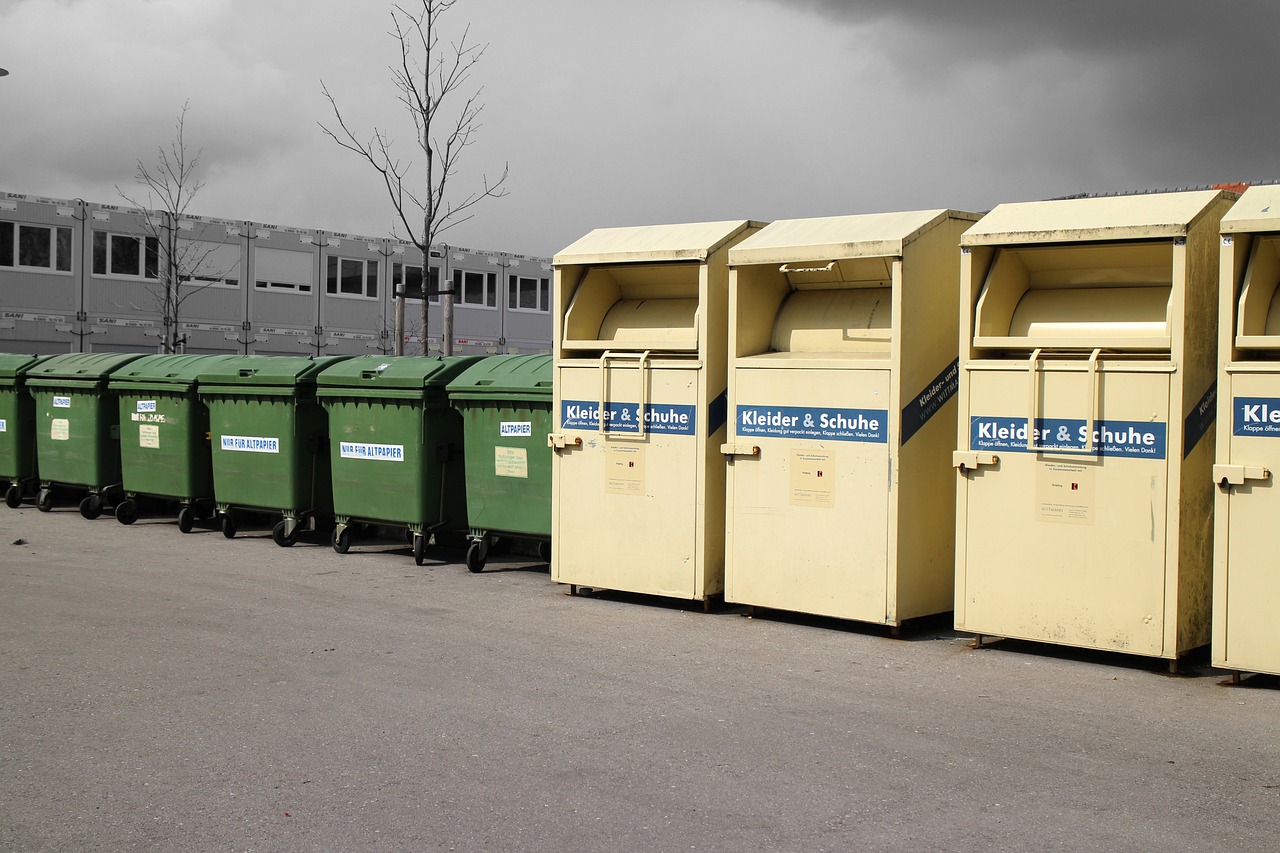
Community Engagement
Community engagement plays a pivotal role in the success of green waste processing initiatives. When local residents become involved, they not only contribute to environmental sustainability but also foster a sense of community pride and responsibility. Imagine a neighborhood where everyone participates in composting and recycling efforts—this creates a vibrant ecosystem of collaboration and shared values. By implementing educational programs, workshops, and local initiatives, communities can cultivate awareness about the benefits of processing green waste.
One effective way to engage the community is through hands-on workshops. These sessions can cover topics such as:
- How to set up a compost bin at home
- The benefits of using mulch in gardens
- Understanding the importance of reducing landfill waste
Moreover, local governments can partner with schools and community organizations to create programs that encourage residents to participate actively. For instance, community clean-up days can be organized where residents bring their green waste to a designated area for processing. This not only reduces waste but also strengthens community bonds. As neighbors work side by side, they exchange ideas and tips on sustainable practices, which can lead to a ripple effect of positive environmental actions.
To further enhance community engagement, it’s essential to provide clear information about the benefits of green waste processing. Consider creating informational flyers or hosting community meetings where residents can ask questions and share their thoughts. Transparency about how the collected green waste is processed and utilized can build trust and encourage more people to participate. When residents see tangible results—like improved local parks or community gardens—they're more likely to stay engaged and involved.
In conclusion, fostering community engagement in green waste processing is not just about waste management; it’s about building a sustainable future together. By educating, involving, and empowering residents, communities can transform their approach to waste and create a healthier environment for all. Remember, every small action counts, and together, we can make a significant difference!
| Question | Answer |
|---|---|
| What is green waste? | Green waste refers to organic materials such as grass clippings, leaves, branches, and food scraps that can be composted or processed. |
| How can I start composting at home? | You can start by setting up a compost bin in your backyard or using a compost tumbler. Add a mix of green materials (like fruit scraps) and brown materials (like dried leaves) to create a balanced compost. |
| Why is community engagement important for green waste processing? | Community engagement encourages participation, increases awareness, and fosters a culture of sustainability, making green waste processing more effective and widespread. |
| Can green waste processing help reduce my carbon footprint? | Yes! By composting and recycling green waste, you reduce the amount of organic material in landfills, which decreases methane emissions and lowers your overall carbon footprint. |
Frequently Asked Questions
- What is green waste processing?
Green waste processing refers to the method of recycling organic materials such as grass clippings, leaves, and food scraps into useful products like compost or mulch. This process not only reduces landfill waste but also enriches soil health, contributing to a more sustainable environment.
- How does green waste processing reduce landfill waste?
By diverting organic materials from landfills, green waste processing significantly decreases the volume of waste sent to these sites. This practice helps minimize methane emissions, a potent greenhouse gas, and extends the lifespan of existing landfills, making waste management more sustainable.
- What are the benefits of composting green waste?
Composting green waste transforms organic materials into nutrient-rich soil amendments. This not only diverts waste from landfills but also creates a valuable resource that enhances soil quality, promotes beneficial microbial activity, and supports sustainable agricultural practices.
- How does compost improve soil health?
Compost enriches soil by adding essential nutrients and organic matter, which improves soil structure and promotes beneficial microbial activity. This results in better water retention and overall healthier ecosystems, making it easier for plants to thrive.
- Can green waste processing help with water conservation?
Absolutely! Compost improves the soil's ability to retain moisture, which reduces the need for frequent irrigation. This is especially beneficial in drought-prone areas, helping conserve water resources while supporting plant health.
- What role does green waste play in reducing carbon footprints?
Processing green waste lowers overall carbon emissions by preventing organic waste from decomposing in landfills, where it releases methane. By utilizing green waste in beneficial ways, we can significantly decrease our carbon footprint and promote a healthier planet.
- How can communities get involved in green waste processing?
Communities can engage in green waste processing through educational programs and local initiatives that promote sustainable practices. By raising awareness and encouraging participation, residents can foster a culture of environmental responsibility and contribute to a greener future.
- What is energy recovery from green waste?
Energy recovery involves processing green waste to generate renewable energy, such as through anaerobic digestion. This method captures methane gas, which can be used to produce electricity, thereby reducing reliance on fossil fuels and supporting sustainable energy practices.



















